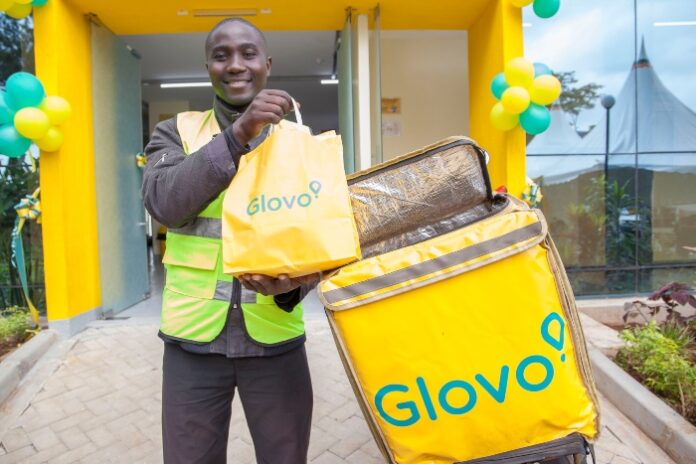Glovo, one of the world’s leading multi-category delivery players, has been ranked top in the gig workspace in Kenya, as revealed in the new report. Glovo scored 7/10 according to the Fairwork report.
In the first report of its kind, researchers from Qhala and the Oxford Internet Institute evaluate the working conditions of the nine most prominent platforms in the country. In the report titled: Fairwork Kenya Ratings 2021: Labour Standards in the Gig Economy.
Glovo ranked top for providing its collaborators with the best labor practices. It was followed closely by SweepSouth (four) and Uber (two), Bolt (one), Little Cab (one), UberEats (one), InDriver (zero), Jumia (zero), and Wasili (zero).
Priscilla Muhiu, Glovo’s General Manager Kenya, said: “While the platform economy has opened up new opportunities, it’s fair to say that it has its challenges and needs improvements. As a company, we strive to set industry standards for a fairer gig economy with best practices framework at its core. As we strive to become an example of fair practices in the sector by committing to implementing comprehensive policies that improve the conditions of our collaborators, we are proud of this ranking as an acknowledgment to continue improving the gig space.’’
Fairwork scores digital labor platforms based on five global principles of ‘fair work’, which were developed through multi-stakeholder meetings at UNCTAD, the international labor Organisation, and stakeholder meetings across four continents. The five principles relate to Fair Pay, Fair Conditions, Fair Contracts, Fair Management, and Fair Representation. Evidence on whether platforms comply with these five principles is collected through desk research, interviews with workers, and platform-provided evidence. The evidence is used to assign a Fairwork score out of ten to individual platforms. With a basic and an advanced point awarded for each of the five principles.
Glovo growing globally with Africa as a focus
According to the report, Glovo was the only platform that received points for Fair Contracts, Glovo provided the terms and conditions governing the relationship with their collaborators, and Fairwork was able to verify that it was accessible to workers, subject to the law of the local.
Glovo also received points for fair working conditions, they took steps to mitigate risks that workers faced in the course of their work for the platform hence Glovo’s wider insurance cover. Glovo also provided evidence of compensating workers for loss of income if they needed to self-isolate as a result of becoming infected with COVID-19.
As per the report, the risk of account blocks and dismissal from platforms without notice is high for most workers, they can face deactivation from platforms for arbitrary reasons, without due process. Glovo and SweepSouth were the only platforms that could evidence an official avenue for workers to appeal disciplinary decisions, including deactivation. This made Glovo and SweepSouth eligible to receive a point for equity in the management process and their extensive anti-discrimination policies.
How local businesses can help most vulnerable in face of Covid-19
The insights presented in the report suggest that companies and regulators still have a long way to go in providing protection to workers in the Kenyan platform economy. Due to high rates of unemployment, Kenyans are increasingly accessing gig work despite the absence of fair working conditions—which will come to affect them down the road. However, the high levels of informality in Kenya and other countries in the Global South should not be an excuse for platforms to provide lower protections to workers locally compared to those increasingly being won by workers in wealthy countries. Kenyan labor laws and worker representation frameworks need to be strengthened if platform workers are to enjoy fair working conditions.
The Fairwork report presents a glimpse of a fast-growing gig economy, underpinned by a young population, a large informal sector, rapid digitalization, and Kenya’s position as a global hub of technological innovation. There were estimated to be more than 35,000 workers in the Kenyan gig economy in 2019, with this number expected to grow to almost 100,000 in 2023. The economic fallout of the COVID-19 pandemic has made access to income and livelihoods for young people in Kenya more urgent.









